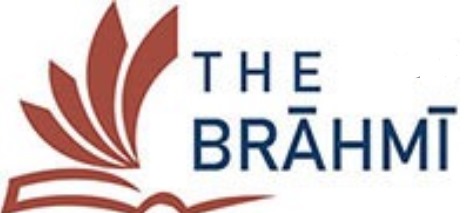Editorial Guidelines for The Brāhmī, International Multidisciplinary Research Journal (Peer Reviewed, Referred & Open Access Journal)
Welcome to The Brāhmī, International Multidisciplinary Research Journal (Peer Reviewed, Referred & Open Access Journal), an esteemed platform dedicated to fostering rigorous academic discourse and advancing knowledge across diverse disciplines. As stewards of scholarly communication, our editorial team is committed to maintaining the highest standards of excellence and integrity.
The following guidelines are designed to ensure consistency, transparency, and fairness in the publication process:
Scope and Focus:
The journal welcomes original research articles, review papers, case studies, and perspectives spanning a wide spectrum of disciplines, including language and literature, the humanities, the arts, social sciences, and interdisciplinary studies. Submissions should demonstrate scholarly rigor, innovation, and relevance to contemporary issues and debates within their respective fields.
Manuscript Preparation:
Authors are encouraged to adhere to the journal’s prescribed manuscript template, available on our website, to ensure uniformity and ease of review. Manuscripts should be prepared in English, Odia, Hindi, and Sanskrit to comply with the journal’s formatting and referencing style guidelines.
Guidelines for Editors
The editors of this journal are international experts in their respective areas and are accountable for the peer-review process as well as the contents of the journal. All members of the editorial board hold positions in educational and research institutions. Their role is to handle peer review of manuscripts, make recommendations on the acceptance or rejection of a paper, and draw high-quality submissions.
The Editorial Board members’ roles are as follows:
- Provide expertise in specific research fields.
- Assess the submitted manuscripts and include independent reviewers in the process.
- The journal should be promoted at conferences, seminars, workshops, and relevant public events.
The Editorial Board is revised every two years, aiming at the exclusion of inactive members as well as the addition of new ones.
Responsibilities of editors
The editors of the journal are solely responsible for determining which of the articles presented to the journal will be published. In making this decision, the editor may consult with the members of the editorial board, including the editor-in-chief.
Editorial Process:
Upon submission, all manuscripts will undergo a rigorous peer-review process conducted by experts in the relevant subject areas. Editors will assess submissions based on originality, significance, methodological soundness, and clarity of presentation. Authors will receive timely and constructive feedback from reviewers to facilitate improvements or revisions as necessary.
Ethical Standards:
Authors are expected to adhere to the highest ethical standards in research conduct and manuscript preparation, including the proper citation of sources and the avoidance of plagiarism or data fabrication. The journal upholds a zero-tolerance policy towards any form of academic misconduct, and allegations of such behavior will be thoroughly investigated.
Copyright and Open Access:
Authors retain copyright of their published work and grant the journal, the right to distribute and disseminate the manuscript under a Creative Commons license or other mutually agreed terms. The journal is committed to promoting open access to scholarly research, making all published articles freely accessible to readers worldwide without subscription barriers.
Editorial Independence and Conflict of Interest:
Editors and reviewers will conduct their duties with impartiality and objectivity, free from any undue influence or conflicts of interest. Authors are required to disclose any potential conflicts of interest that may arise from financial, personal, or professional affiliations that could reasonably be perceived as influencing the research or its interpretation.
Corrections and retractions:
The journal upholds a commitment to accuracy and accountability. In the event of errors or inaccuracies in published work, the journal will promptly issue corrections or retractions as necessary, following established best practices and guidelines.
Diversity and Inclusivity:
The journal values diversity in perspectives, methodologies, and authorship. We encourage submissions from researchers representing diverse backgrounds, disciplines, and geographic regions. The editorial team is committed to fostering an inclusive and respectful scholarly community, free from discrimination or bias on the basis of race, gender, nationality, religion, or any other characteristic.
Continuous Improvement:
The journal is committed to continuous improvement and welcomes feedback from authors, reviewers, readers, and other stakeholders to enhance the quality and impact of our publications and processes.
Editorial Decisions and Appeals:
Editorial decisions, including acceptance, rejection, or requests for revisions, are based on the merit of the manuscript and the recommendations of peer reviewers. Authors may appeal editorial decisions by providing substantive justification and additional evidence to support their case. Appeals will be reviewed by the editorial team with fairness and transparency.
These editorial guidelines serve as a framework to uphold the principles of integrity, excellence, and scholarly advancement in The Brāhmī. We thank you for your contributions to our journal and look forward to showcasing innovative research that pushes the boundaries of knowledge and understanding.
